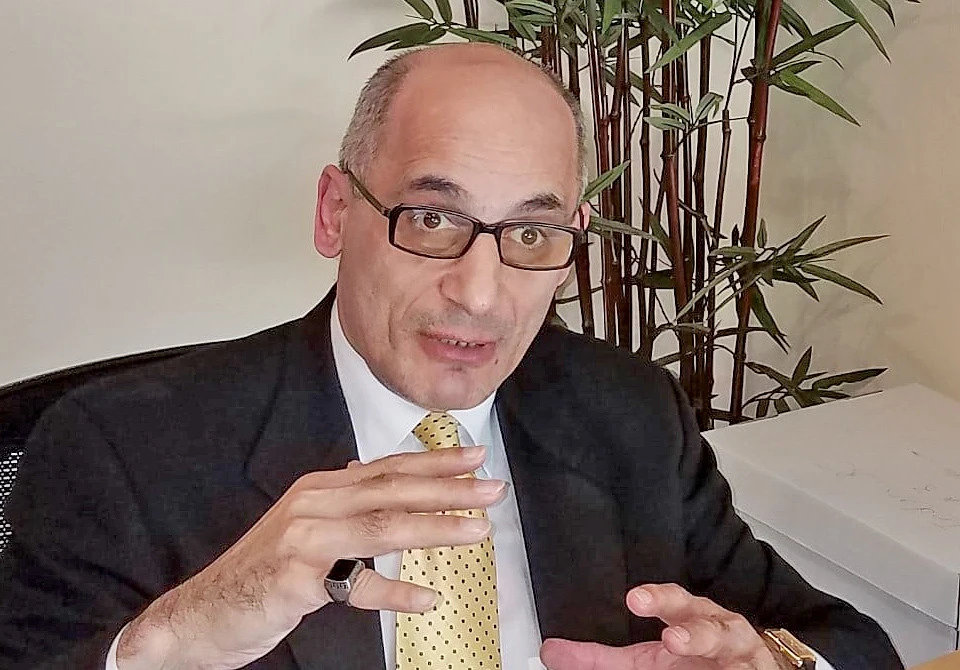Washington, DC, September 6, 2025
On journalist Yevgeny Kiselyov’s channel, Azerbaijani political analyst and Khazar University professor Ramis Yunus said the crisis in Russia–Azerbaijan relations remains unresolved after President Ilham Aliyev and Vladimir Putin exchanged only a brief handshake in Beijing – without even small talk – during SCO/VEF events. According to Yunus, days of backstage haggling between delegations failed to produce an agenda for a formal meeting, signaling no breakthrough and a likely continuation of pressure tactics from Moscow.
Yunus tied the rupture to last December’s downing of an Azerbaijani passenger jet by Russian air defense. He said the Kremlin first pushed Baku to blame Ukrainian drone activity; Azerbaijan refused, and relations plunged. Baku expects accountability “at least on par” with its own response when an Armenian helicopter was mistakenly shot down in 2020, Yunus noted. He said that since spring, Russian authorities have intensified pressure on the Azerbaijani diaspora and seized businesses, while state TV floats notions of a new “special military operation” in the South Caucasus, potentially with Iran.
Still, Yunus rated the chance of any Russian or Russia–Iran military move against Azerbaijan at 1–2%, calling it a “self-destructive” scenario for a Kremlin already stuck in a strategic zugzwang in Ukraine. He argued Azerbaijan’s starting position is far stronger than Ukraine’s in early 2022 thanks to the Shusha Declaration with Turkey, deepening trilateral ties with Turkey and Pakistan, strategic defense links with Israel, and new political capital in Washington after the joint Aliyev – Pashinyan appearance at the White House.
Yunus framed Baku’s doctrine as “pro-Azerbaijan, equidistant from great-power blocs,” with its natural “family” being the Organization of Turkic States. He pointed to the Middle Corridor’s geography – Kazakhstan/Uzbekistan/Turkmenistan westward through Azerbaijan—and stressed that EU, U.S., and China all need a stable South Caucasus. He highlighted trade asymmetries as proof of Baku’s diversification: roughly $16bn with Italy vs. $8bn with Turkey and $4bn with Russia.
On SCO dynamics, Yunus said India vetoed Azerbaijan’s application as reciprocity for Pakistan blocking Armenia’s; paradoxically, he argued, sitting out the SCO now suits both Baku and Yerevan until the forum gains clearer “on-the-ground” substance.
Looking ahead, Yunus expects Baku to pursue recourse through international aviation channels after the one-year mark in December if Moscow maintains denial. He also stressed that images of the first ladies of Turkey, Azerbaijan, and Armenia together, and the separate cordial exchange between the Azerbaijani and Armenian first ladies, are deliberate signals that Ankara, Washington and Brussels will keep nurturing an Armenia–Azerbaijan normalization track anchored in unblocking routes such as Zangezur.
Lacking a clear agenda with Moscow and facing sustained pressure, Baku will lean harder on its security partnerships and logistics centrality, using ties to Turkey, Pakistan, Israel, the U.S., EU and China to secure room for maneuver. The threat of military adventurism from Russia is unlikely, but it cannot be ruled out.


